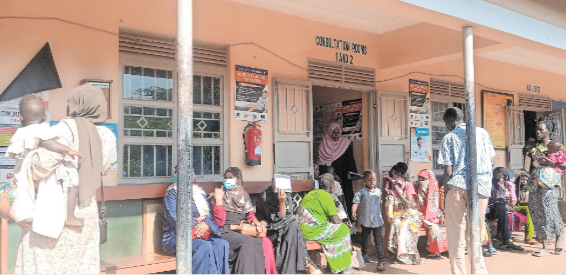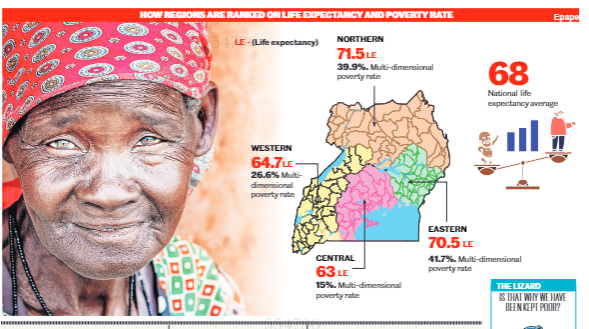Uganda faces rising burden of non-communicable diseases

Patients pay attention to experts during the Wakiso Health Centre IV education session on Thursday. Photo | Eve Muganga
What you need to know:
- Dr Josephine Birungi, a researcher on NCDs, warned, "We used to refer to NCDs as diseases of the rich, but these are diseases now that are here with us all."
Researchers from the Medical Research Council, Uganda Virus Research Institute, and London School of Hygiene and Tropical Medicine have sounded the alarm on the growing prevalence of Non-Communicable Diseases (NCDs) in Uganda.
Dr Josephine Birungi, a researcher on NCDs, warned, "We used to refer to NCDs as diseases of the rich, but these are diseases now that are here with us all." She revealed that hypertension affects 22-34% of Ugandans, while diabetes prevalence stands at 1.4-4.5 per cent.
"What is even more worrying is that very few people are aware about this," Dr. Birungi noted. "Only 7-20 per cent of those affected by hypertension are aware of their condition, and a mere 5-8 per cent have it under control."
Dr Birungi emphasised the importance of integrating HIV and NCD care to combat this issue.
"We have done very well with HIV, and we can do better with NCDs. We need to educate children in schools to increase physical activities and eat healthy to reduce risk factors," he said.
She highlighted the benefits of integration, saying it "saves costs and reduces stigma, allowing patients to receive comprehensive care."
Dr Charles Jjuuko, a clinician at Wakiso Health Center IV, reported that integrating clinics has shown promising results.
"We previously used to have separate clinics, but now we see the benefits of integration," he said.
One of the patients, Mr Dominic Muliika praised the integrated clinic, saying it has saved him time and improved his care.
"I was only getting medication for HIV/AIDS until I was told to also check for diabetes and hypertension. When results came back, I was suffering from both and I started medication through the integrated clinic," he said.
The Ugandan government and health stakeholders are urged to take action to address the growing burden of NCDs through integrated care, education, and awareness.
The global week of action on NCDs 2024 was commemorated at Wakiso Health Center IV on October 16, under the theme "Translating NCD research into practical policies and practice for health impact."





